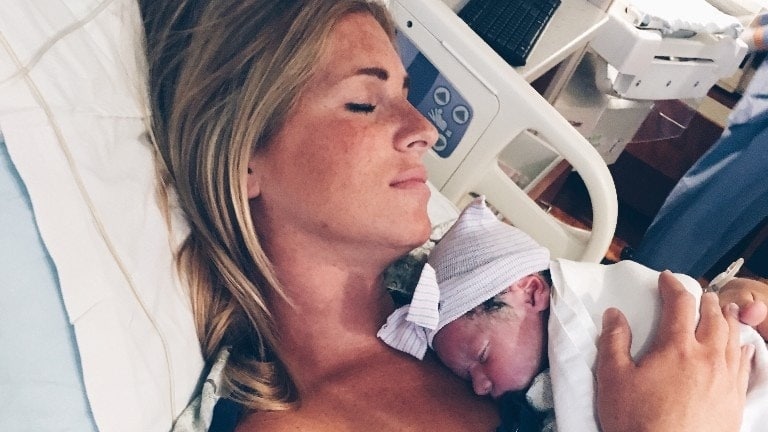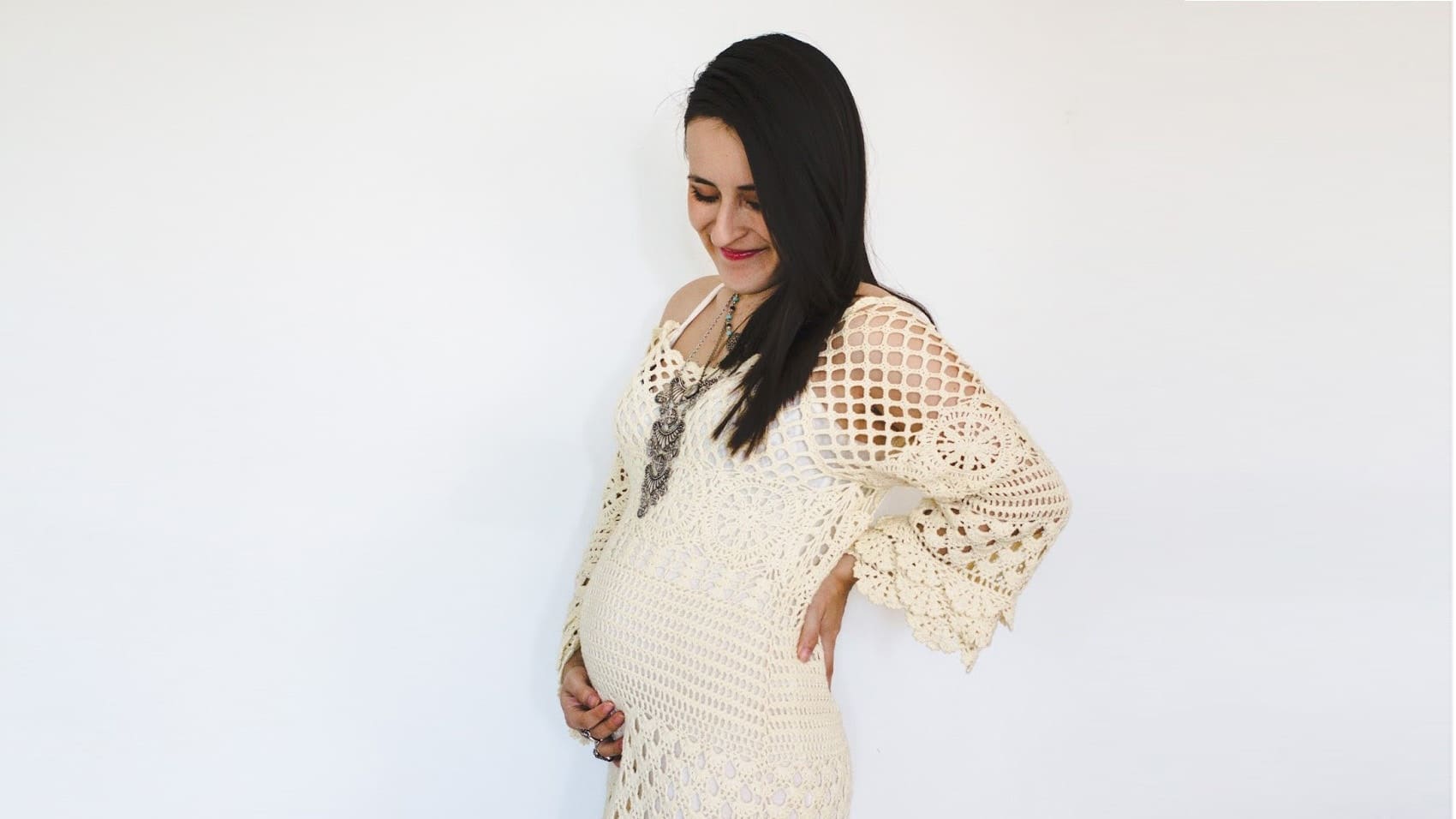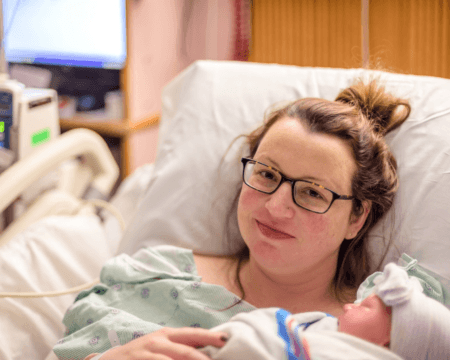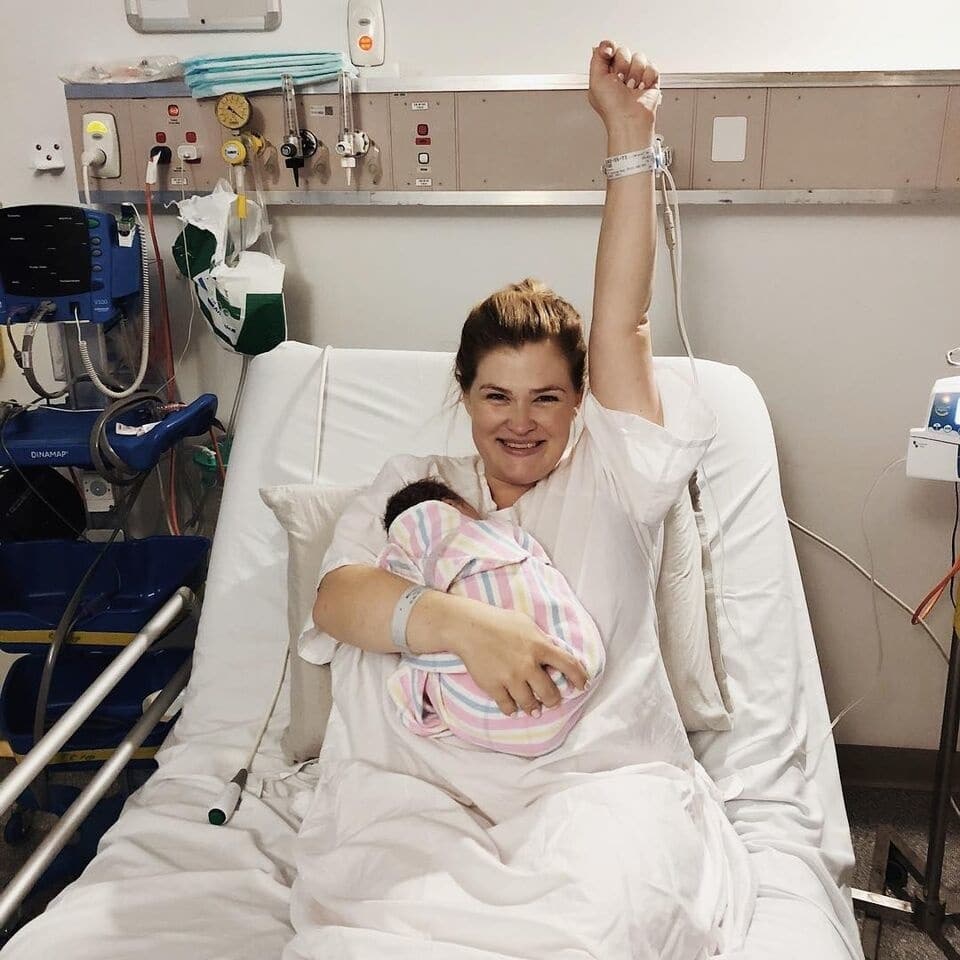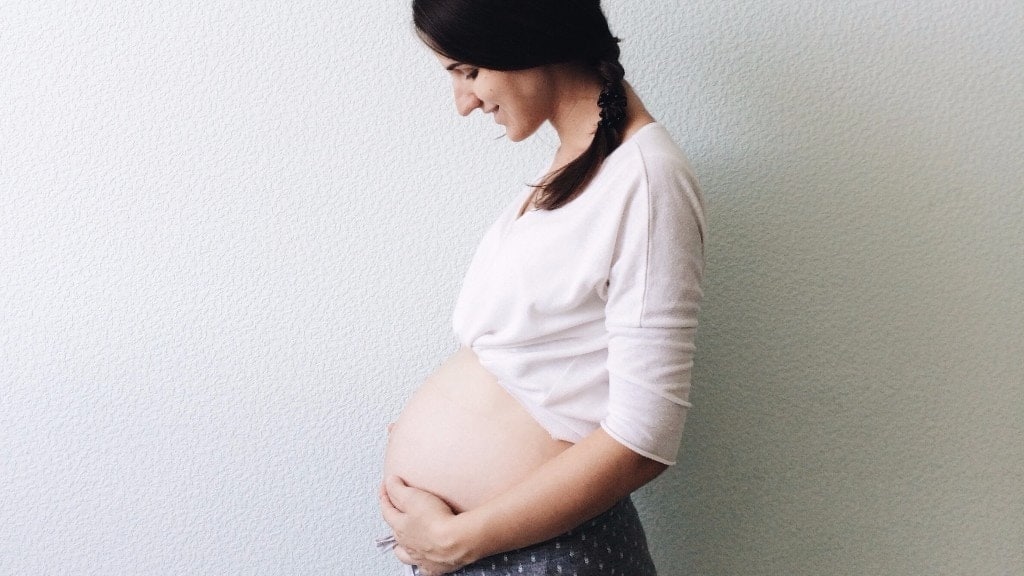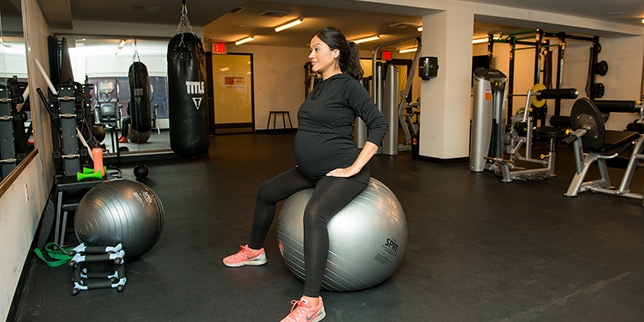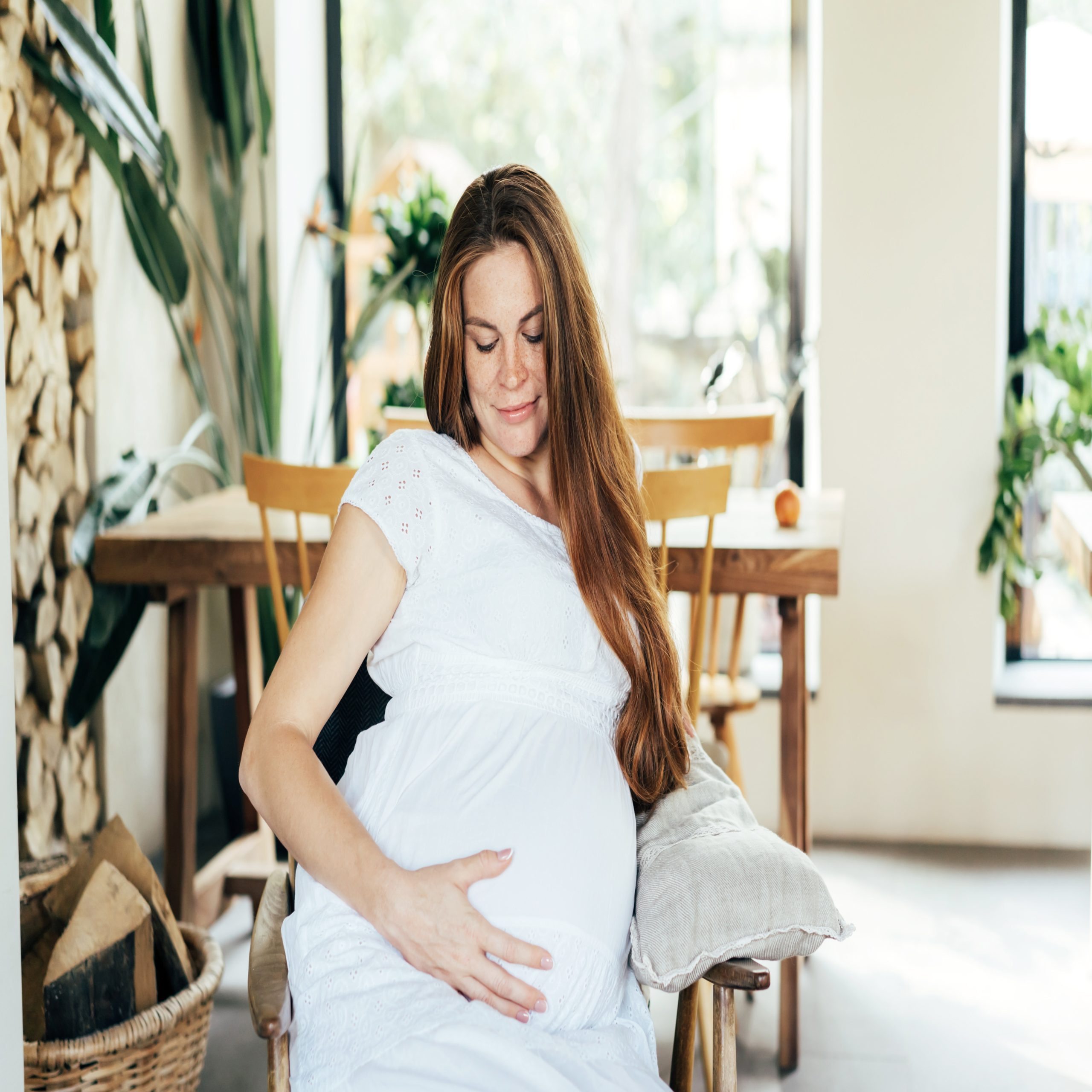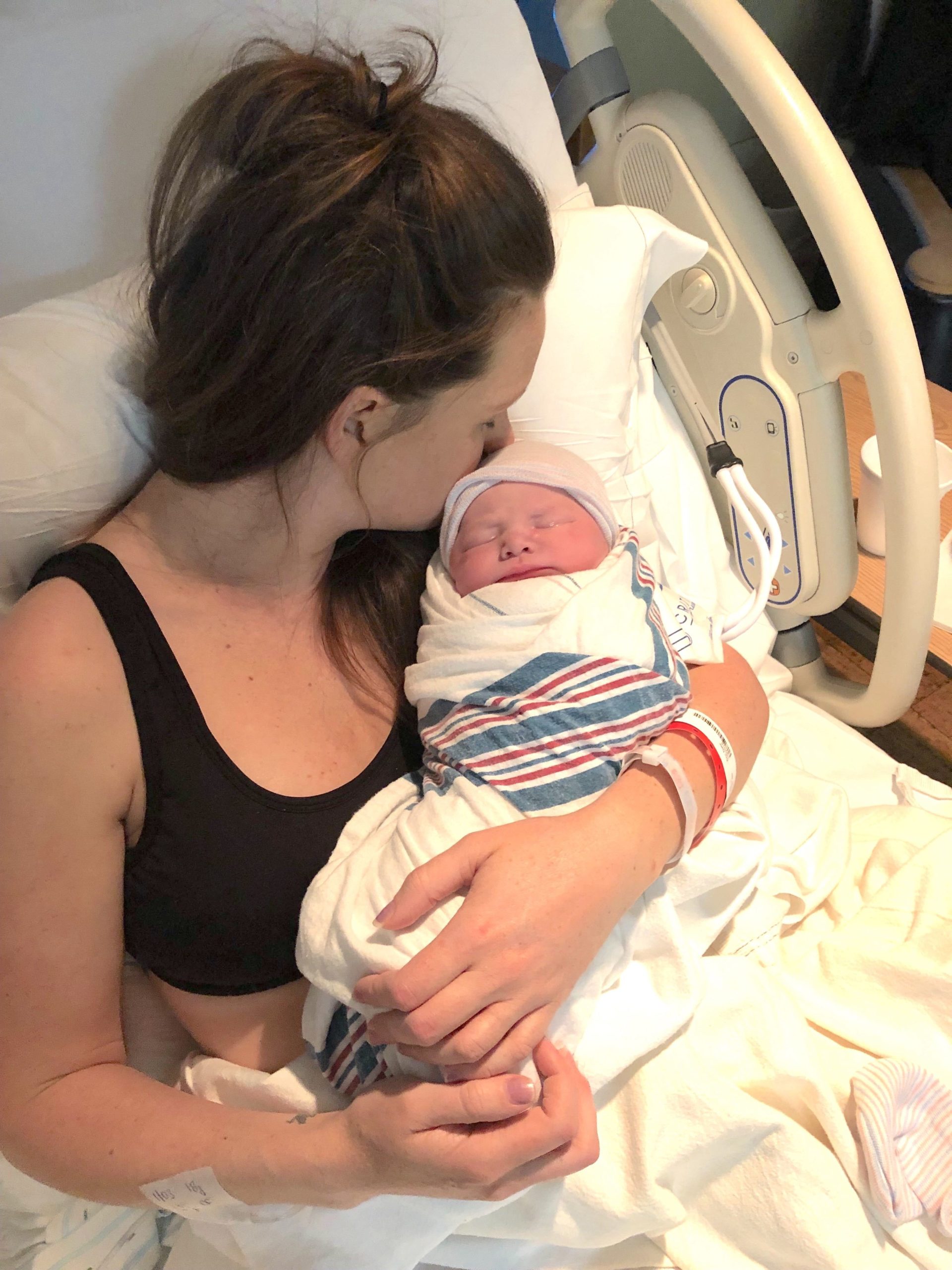The scientific reason why pregnant women should nap
Although I’m normally not much of a napper, that changes during my pregnancies. Without fail, it became virtually impossible for me to keep my eyes open when 3 o’clock rolled around during my third trimester. But rather than fight the urge to lay down for a quick doze, a new study gives pregnant mamas full permission to get a little shut-eye—for the health of their babies.
According to new research published in the journal Sleep Medicine, pregnant women who regularly nap are less likely to have a baby with a low birth weight, defined as weighing less than 5.5 lbs. A low birth weight is associated with health complications during childhood and adulthood, such as respiratory illnesses and hypertension. So snoozing doesn’t only help you get through the afternoon, but also has some potentially big benefits for the long-term health of your baby.
For the report, researchers in China analyzed data from 10,111 participants in the 2012-2014 Healthy Baby Cohort study. They found that expectant mothers who regularly took afternoon naps between 60 and 90 minutes long were 29% less likely to have a baby with a low birth weight compared with mothers who didn’t nap. They also found that napping five to seven days a week reduced the likelihood of having a baby with a low birth weight by 22%.
The findings are significant to Dr. Suzanne Karan of the University of Rochester Medical Center in New York. Although she wasn’t involved in the study, she tells Reuters Health that her team is investigating a link between babies’ birth weights and mothers’ sleep habits. “This napping study is another signal that paying attention to sleep is an important part of your overall pregnancy health,” Karan says. “Pregnancy is like a stress test that shows what health problems you could have later in life, so it’s important to pay attention and treat it now.”
If that isn’t compelling enough, keep in mind that pregnancy fatigue is caused by the physical and hormonal changes your body is undergoing while growing a human. On top of that, nighttime sleep may be more disrupted by bathroom breaks and physical discomfort by the third trimester.
And while the new study found the biggest benefits among mamas who logged more than an hour of napping, even a power nap can go a long way toward filling your energy tank—so go ahead and snooze without the guilt.
Optimizing Your Pregnancy Naps: Tips for the Third Trimester
Though necessary, napping during pregnancy might not always be straightforward. Here are some strategies to help you make the most of your nap time in the third trimester.
Timing Your Naps Right
The duration of your nap can impact its benefits. Some studies suggest that a 90-minute nap is ideal. However, don’t be disheartened if your schedule doesn’t permit such lengthy naps. Even short naps can contribute to a healthier pregnancy and baby.
Choosing the Right Sleeping Position
Your sleeping position during pregnancy matters. Lying on your left side can promote blood flow to the placenta and prevent pressure on your liver, providing optimal conditions for your baby’s growth. Using a pregnancy pillow can offer additional support and comfort.
Creating a Relaxing Environment
A restful environment can enhance the quality of your nap. Consider dimming the lights, turning off electronic devices, and ensuring a comfortable room temperature. Using earplugs or playing soothing sounds can also contribute to a serene ambiance conducive to sleep.
Managing Fluid Intake
Staying hydrated is essential during pregnancy, but excessive fluid intake right before a nap might lead to frequent bathroom visits, interrupting your rest. Try to balance your fluid intake throughout the day to prevent this issue.
Minimizing Interruptions
Communicate your nap schedule with family members or co-workers to ensure uninterrupted rest. If you have other children, enlist the help of your partner or a trusted friend to supervise them while you nap.
Embracing pregnancy naps third trimester can be a game-changer in your pregnancy journey. It’s not just about catching up on sleep—it’s about nurturing your well-being and preparing for the exciting journey of motherhood ahead. Remember, every pregnancy is unique, and so is every mother’s need for rest. Listen to your body, prioritize your well-being, and don’t hesitate to take that nap. After all, you’re sleeping for two!
Frequently Asked Questions
Is it normal to take naps in the third trimester?
Absolutely, mama! Napping is not just normal but recommended during your third trimester. Your body is working overtime, so if it’s asking for rest, go ahead and listen.
Why am I sleeping so much in my third trimester?
Your body is undergoing a lot of changes and working hard to grow your little one. This can make you more tired than usual. Plus, it might be harder to get a good night’s sleep due to your growing belly.
How long should you nap while pregnant?
Aim for short naps, around 20-30 minutes. If that’s not enough, 60-90 minute naps can also be beneficial. Just find what works best for you and your body.
How much sleep should a pregnant woman get in the third trimester?
Try to get between 7 and 9 hours of sleep per night. If nighttime sleep is elusive, naps can help you catch up on much-needed rest.
Is sleeping too much in the third trimester bad?
While rest is important, too much sleep can leave you feeling sluggish. Balance is key. If you’re concerned about how much you’re sleeping, chat with your healthcare provider.
Is it normal to want to sleep all day when pregnant?
Feeling extra sleepy is common, especially as your body works harder. But if you’re struggling to stay awake day in and day out, it’s a good idea to discuss this with your doctor.
Which gender has extreme tiredness during early pregnancy?
Tiredness doesn’t pick genders, lovely! It’s a common symptom for many pregnant women, regardless of their baby’s gender.
Does sleeping too much affect my unborn baby?
There’s no direct link showing that extra sleep harms your unborn baby. However, maintaining a regular sleep schedule is beneficial for both of you. If you have sleep concerns, your doctor is just a call away.
Does the fetus sleep when the mother sleeps?
Your little one doesn’t follow the same sleep schedule as you. They have their own sleep cycles. Rest assured, your sleeping habits are likely providing a comfortable environment for them to grow.




